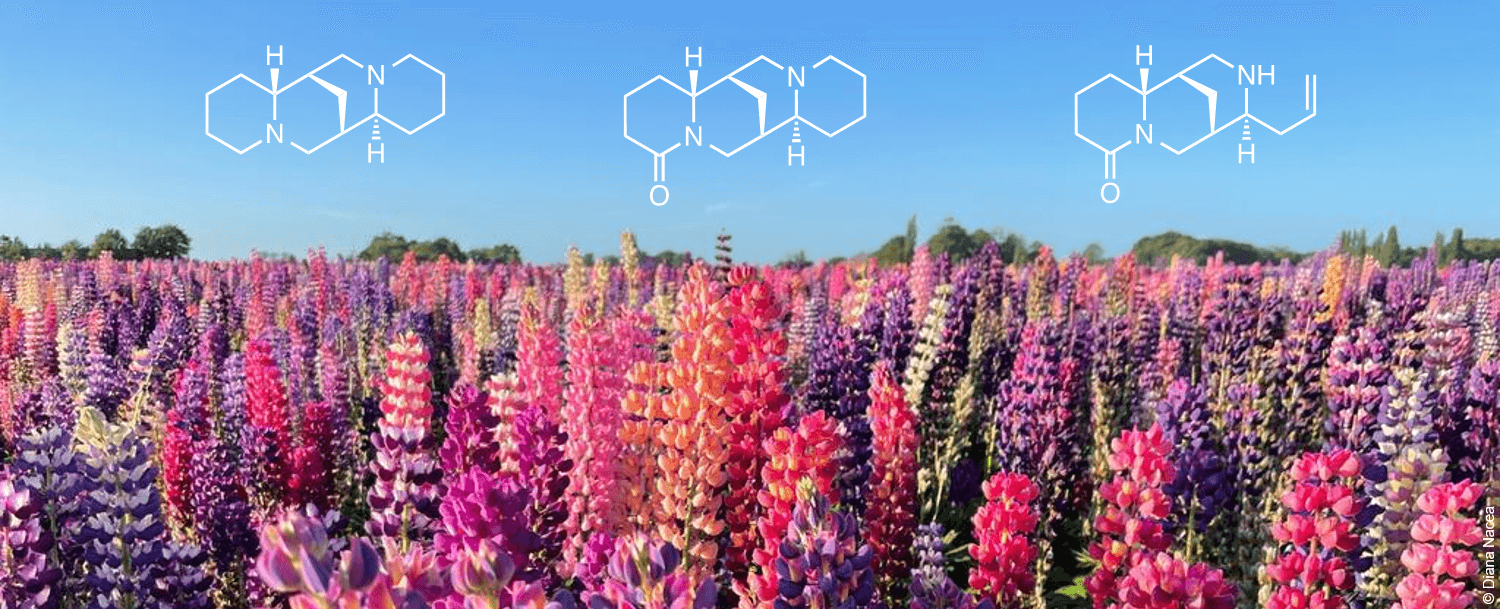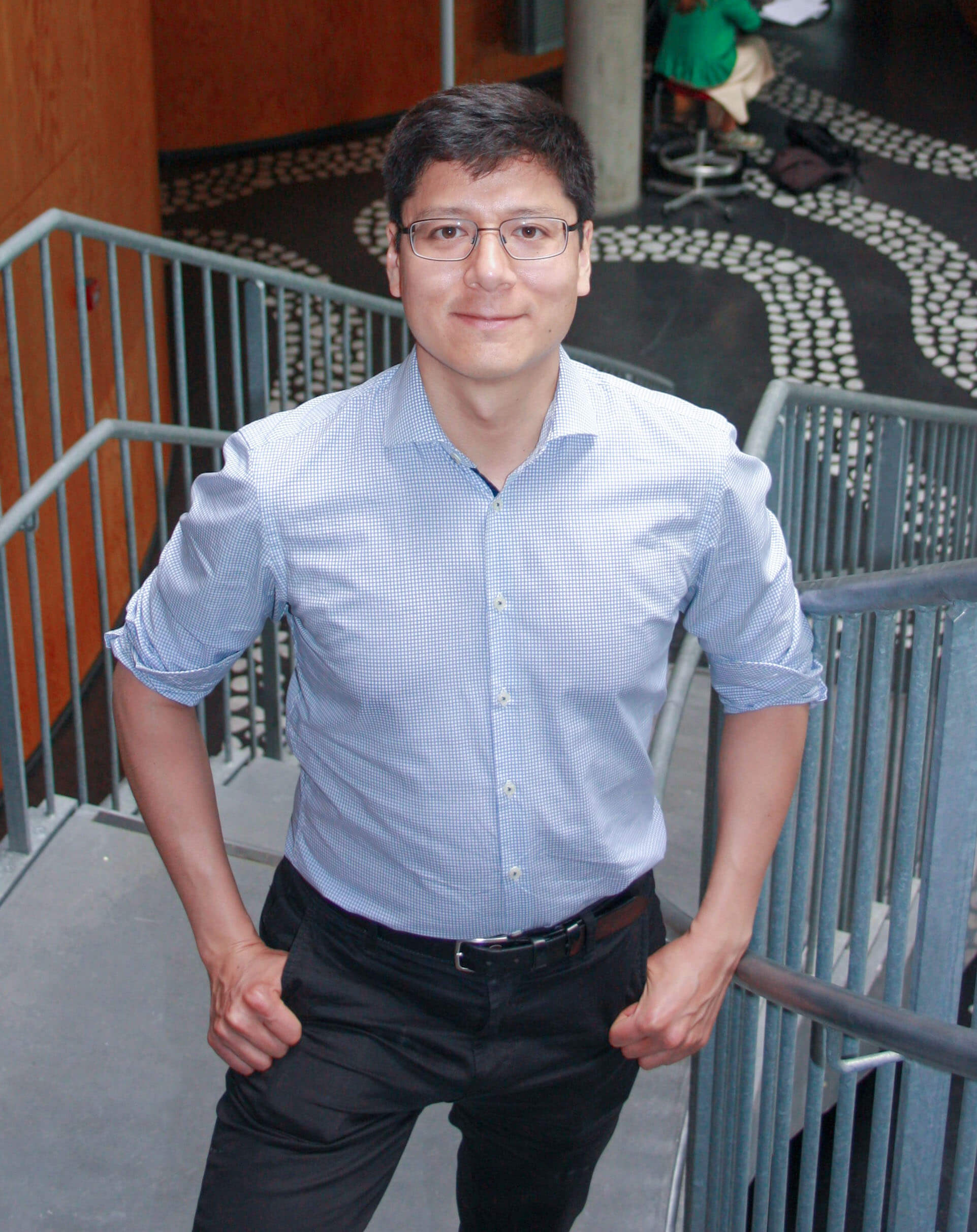Alkaloid Biosynthesis and Transport

Uncovering the chemical secrets of plants
Plants are the world’s greenest chemists. Powered by solar energy, they produce a variety of natural products with medicinal and industrial applications. However, the precise manner in which plants produce and mobilize many of these compounds remains unknown. Our group combines a solid background in chemistry with state-of-the-art technologies in a quest to uncover the chemical secrets of plants, with special focus on alkaloids. Biotechnological applications include the production of medicinal compounds in cost-effective systems and the removal of anti-nutritional compounds from promising crops.
- Alkaloid biosynthesis. Alkaloids are a class of natural products that have had an enormous impact on the quality of human life. Their impressive range of bioactivities has led to utilization as pharmaceuticals, stimulants, and pesticides (e.g. morphine, caffeine, nicotine). Our group specializes in the discovery of plant enzymes involved in the conversion of simple metabolic building blocks into complex alkaloid structures.
- Alkaloid transport. Very often, plant alkaloids are accumulated in tissues that are different from the ones that produce them. Our group investigates the long-distance networks translocating alkaloids from biosynthesis sites to storage sites, with emphasis on the discovery of transporter proteins.
- Synthetic biology. We use our discoveries to devise strategies for the cost-effective production of medicinal alkaloids in production hosts such as yeast or the model plant Nicotiana benthamiana. In cases where toxic alkaloids accumulate in promising crop plants, we use novel breeding technologies to remove the toxic alkaloids from the edible parts of the plant in a selective manner.
M.Sc. and B.Sc. projects are currently available for motivated students wishing to work with us. Please send a brief motivation letter as well as transcript list (courses taken and grades obtained) to group leader Fernando Geu-Flores at feg@plen.ku.dk
- ZEN – Zero-vicine faba beans (DFF-FTP Project 2, 2022-2026)
- Sustainable production of the glaucoma drug pilocarpine (DFF-FTP Project 2, 2022-2026)
- NovoCrops - Accelerated domestication of resilient climate-change friendly plant species (NNF Challenge Programme; WP4 on lupins, 2020-2026)
- NutriFaba - Using biochemistry and biotechnology to improve the nutritional content of faba bean (NNF Ascending Investigator Grant, 2023-2028)
- RUPIN - Development of organic high-quality rye and lupin for human consumption (Organic RDD Grant from GUDP, 2025-2029)
Our group is part of the NNF-funded NovoCrops centre.
Alkaloid biosynthesis in faba bean:
- Stig Uggerhøj Andersen (Aarhus University, Denmark)
- Hester Sheehan (University of Vienna, Austria)
- Sanja Roje (Washington State University, USA)
Alkaloid biosynthesis and transport in lupins:
- Hussam Nour-Eldin (University of Copenhagen, Denmark)
- Dan Stærk (University of Copenhagen, Denmark)
- Ahmed Jahoor & Andrea Schiemann (Nordic Seed, Denmark)
Alkaloid biosynthesis in jaborandi:
- Guilherme Oliveira (VALE Institute of Technology, Brazil)
Synthetic biology:
- Nicola Patron (Cambridge University, UK)
- Sotirios Kampranis (University of Copenhagen, Denmark)
- Toni Wendt (Traitomic, Carlsberg A/S, Denmark)
Group members
| Navn | Titel | Telefon | |
|---|---|---|---|
| Denise Vivian Marleen Blume | Videnskabelig assistent | +4535329734 | |
| Fernando Geu-Flores | Lektor - forfremmelsesprogrammet | +4535332852 | |
| Henryk Straube | Postdoc Marie Curie | +4535328955 | |
| Isabelle May Angstman | Videnskabelig assistent | +4535325984 | |
| Malin Madeleine Eriksson | Ph.d.-stipendiat | +4535325332 | |
| Michel Westermann | Ph.d.-stipendiat | +4535327094 |

